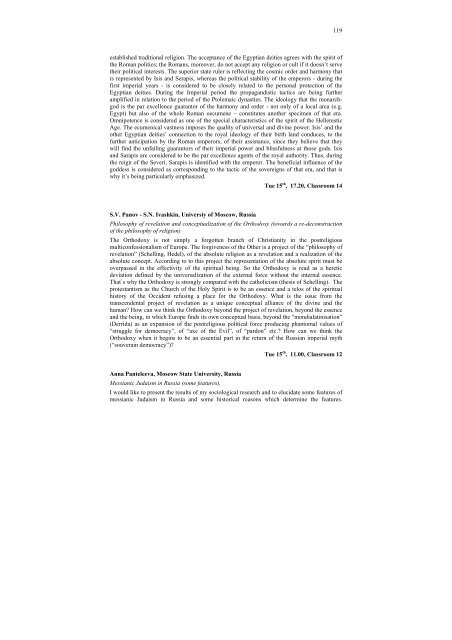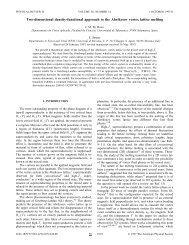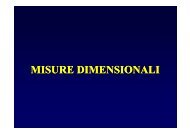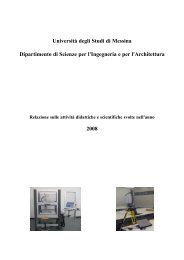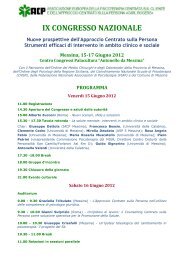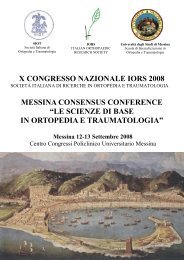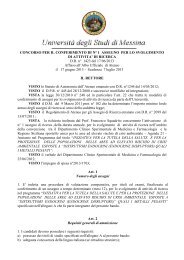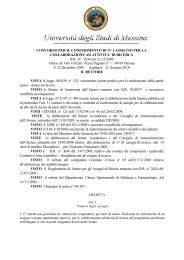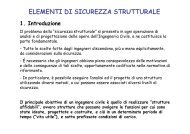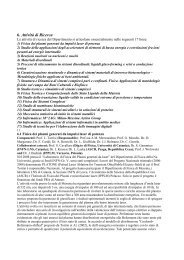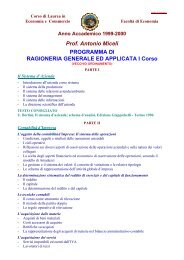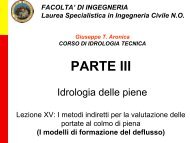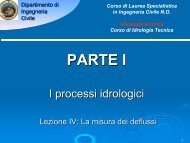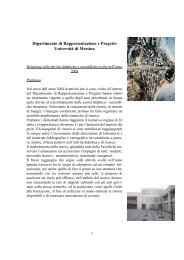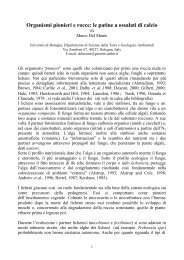PROGRAMME AND ABSTRACTS - Università degli Studi di Messina
PROGRAMME AND ABSTRACTS - Università degli Studi di Messina
PROGRAMME AND ABSTRACTS - Università degli Studi di Messina
You also want an ePaper? Increase the reach of your titles
YUMPU automatically turns print PDFs into web optimized ePapers that Google loves.
119<br />
established tra<strong>di</strong>tional religion. The acceptance of the Egyptian deities agrees with the spirit of<br />
the Roman politics; the Romans, moreover, do not accept any religion or cult if it doesn’t serve<br />
their political interests. The superior state ruler is reflecting the cosmic order and harmony that<br />
is represented by Isis and Serapis, whereas the political stability of the emperors - during the<br />
first imperial years - is considered to be closely related to the personal protection of the<br />
Egyptian deities. During the Imperial period the propagan<strong>di</strong>stic tactics are being further<br />
amplified in relation to the period of the Ptolemaic dynasties. The ideology that the monarchgod<br />
is the par excellence guarantor of the harmony and order - not only of a local area (e.g.<br />
Egypt) but also of the whole Roman oecumene – constitutes another specimen of that era.<br />
Omnipotence is considered as one of the special characteristics of the spirit of the Hellenistic<br />
Age. The ecumenical vastness imposes the quality of universal and <strong>di</strong>vine power. Isis’ and the<br />
other Egyptian deities’ connection to the royal ideology of their birth land conduces, to the<br />
further anticipation by the Roman emperors, of their assistance, since they believe that they<br />
will find the unfailing guarantors of their imperial power and blissfulness at those gods. Isis<br />
and Sarapis are considered to be the par excellence agents of the royal authority. Thus, during<br />
the reign of the Severi, Sarapis is identified with the emperor. The beneficial influence of the<br />
goddess is considered as correspon<strong>di</strong>ng to the tactic of the sovereigns of that era, and that is<br />
why it’s being particularly emphasized.<br />
S.V. Panov - S.N. Ivashkin, Universiy of Moscow, Russia<br />
Tue 15 th , 17.20, Classroom 14<br />
Philosophy of revelation and conceptualization of the Orthodoxy (towards a re-deconstruction<br />
of the philosophy of religion)<br />
The Orthodoxy is not simply a forgotten branch of Christianity in the postreligious<br />
multiconfessionalism of Europe. The forgiveness of the Other is a project of the “philosophy of<br />
revelation” (Schelling, Hedel), of the absolute religion as a revelation and a realization of the<br />
absolute concept. Accor<strong>di</strong>ng to to this project the representation of the absolute spirit must be<br />
overpassed in the effectivity of the spiritual being. So the Orthodoxy is read as a heretic<br />
deviation defined by the universalization of the external force without the internal essence.<br />
That`s why the Orthodoxy is strongly compared with the catholicism (thesis of Schelling). The<br />
protestantism as the Church of the Holy Spirit is to be an essence and a telos of the spiritual<br />
history of the Occident refusing a place for the Orthodoxy. What is the issue from the<br />
transcendental project of revelation as a unique conceptual alliance of the <strong>di</strong>vine and the<br />
human? How can we think the Orthodoxy beyond the project of revelation, beyond the essence<br />
and the being, in which Europe finds its own conceptual basis, beyond the “mon<strong>di</strong>alatinisation”<br />
(Derrida) as an expansion of the postreligious political force producing phantomal values of<br />
“struggle for democracy”, of “axe of the Evil”, of “pardon” etc.? How can we think the<br />
Orthodoxy when it begins to be an essential part in the return of the Russian imperial myth<br />
(“souverain democracy”)?<br />
Anna Panteleeva, Moscow State University, Russia<br />
Messianic Judaism in Russia (some features).<br />
Tue 15 th , 11.00, Classroom 12<br />
I would like to present the results of my sociological research and to elucidate some features of<br />
messianic Judaism in Russia and some historical reasons which determine the features.


